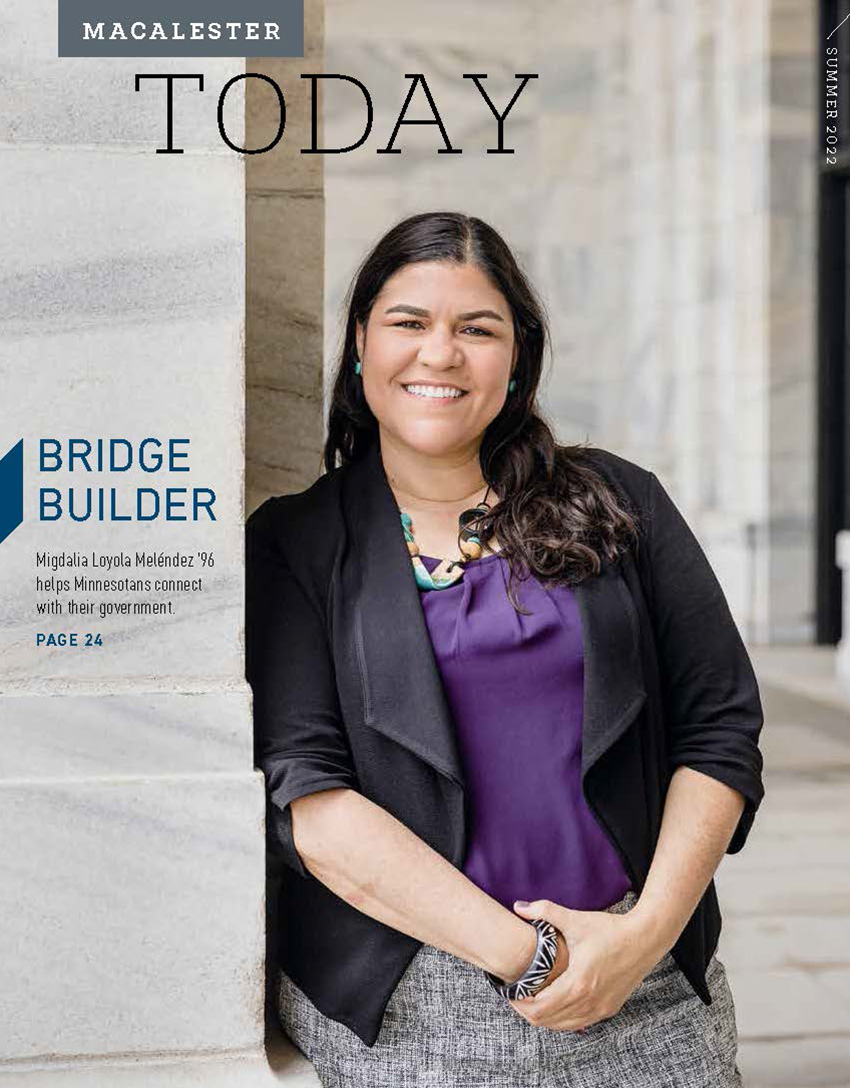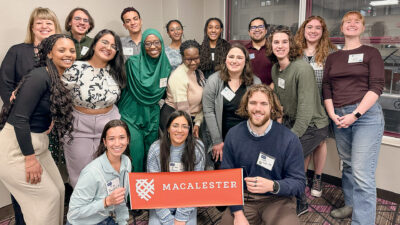
The free exchange of ideas is a cornerstone of liberal education. Colleges like Macalester must support open debate and welcome a diversity of viewpoints.
The American Association of Colleges and Universities defines a liberal education as one that “empowers individuals with broad knowledge and transferable skills, and a stronger sense of values, ethics, and civic engagement … characterized by challenging encounters with important issues, and more a way of studying than a specific course or field of study.” Such challenging encounters are constructive and should not be feared.
Of course, the current climate in the US is one that feels very divisive. I don’t blame anyone for being nervous about expressing a controversial point of view. As a bioethicist, I was trained to take on the thorniest of topics in my research and scholarship, and I still sometimes feel bashful about disagreeing openly with colleagues and friends. But the skills to do so effectively are essential for the thriving of a democratic society. So, we must treat differences of opinion as opportunities to learn and grow.
For this reason, we encourage academic departments at Macalester to invite speakers to campus from across the political spectrum who are passionate about their areas of expertise. We train students to communicate persuasively in classes, using evidence to support their arguments. Through co-curricular programming like forensics (did you know that Mac students won the collegiate Ethics Bowl national championship this year?), we provide opportunities to apply these skills in dialogue with students from other college campuses. And, in the fall, we are bringing the “Congress to Campus” program to Macalester to demonstrate how elected leaders on different sides of an issue can engage respectfully in a vigorous disagreement.
At Macalester, we want to foster an environment that challenges our students and helps them form opinions. That includes encouraging them to remain curious, listen deeply, practice discernment, and maintain a learning stance as they encounter ideas that are unfamiliar or even in conflict with their worldviews. We want them to engage courageously with the most vexing controversies of the day. Sometimes it gets messy and that’s okay.
Does the principle of free speech mean we must tolerate threats of violence in our community or condone behavior that creates a hostile working and learning environment? No, of course not. Freedom to express a point of view does not include infringing on the rights of others to live and learn on our campus. As a private institution, Macalester has the legal autonomy to define a code of conduct that would apply consequences to people who cause harm through their actions (including language that meets the definition of harassment).
Instead of restricting people’s words, we need to establish a clear understanding that the freedom to express an idea is not the same as freedom from consequences. When you say something unpopular or untrue, people may not agree—and that’s their right. The listener can respond to say they are hurt, or angry, or no longer want to listen. That response also is free speech. It’s not feasible or even desirable to imagine speech without consequences.
We also must do our best to develop awareness about the impact of speech. Kindness is a virtue and it’s important that we each develop the compassion to not intentionally wound with our words. Expressing a point of view need not devolve into a personal attack. Conflicts can be resolved collegially. It’s possible to merely say, “I disagree” or “that argument is not persuasive to me.” We all have a responsibility to be respectful of others, even (perhaps especially) when we don’t see eye to eye.
Members of the Macalester community have told me that I should serve as a moderator of speech to protect people from ideas they deem hurtful or uncomfortable to hear. I strenuously disagree. No member of the Mac community should be restricted by me from hearing an idea or a point of view. That’s not my role as president, nor should you want it to be. It would limit members of this community in ways that are dangerous. Indeed, I think the opposite is true. More speech—not less—is vital to learning. “To suppress free speech is a double wrong,” Frederick Douglass said in 1860 after a crowd opposing abolition blocked him from speaking at a meeting. “It violates the rights of the hearer as well as the speaker.”
One of my highest priorities is to ensure all members of this community feel included and all voices can be heard—even the ones that challenge or upset us. We must do all we can to promote the exchange of ideas, anticipating that it sometimes will result in passionate conflict. Challenging encounters help us to sharpen our thinking and may even cause us to shift our perspectives. If that sounds uncomfortable, perhaps we are doing our jobs well.
Dr. Suzanne M. Rivera is president of Macalester College.
July 18 2022
Back to top





